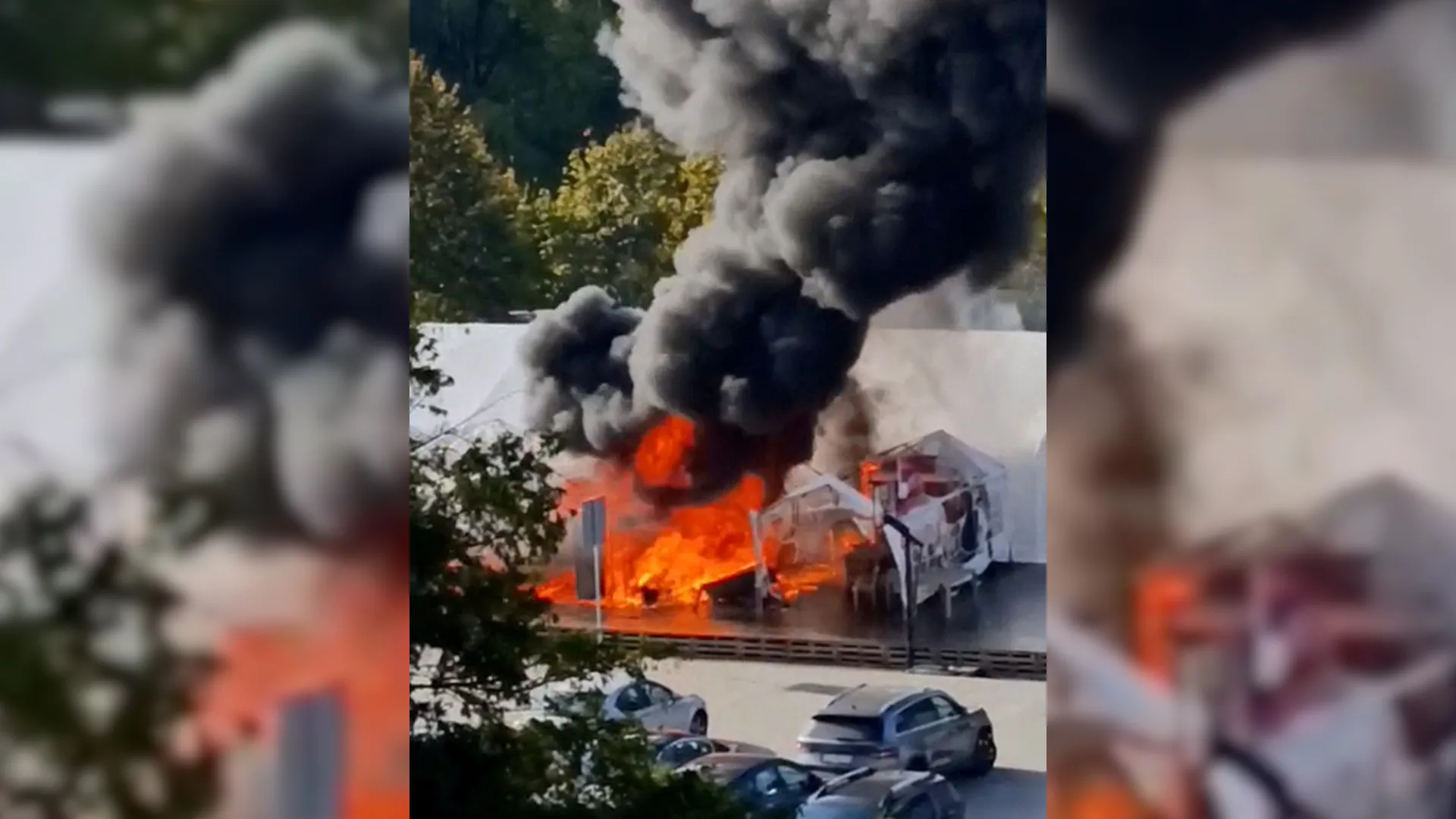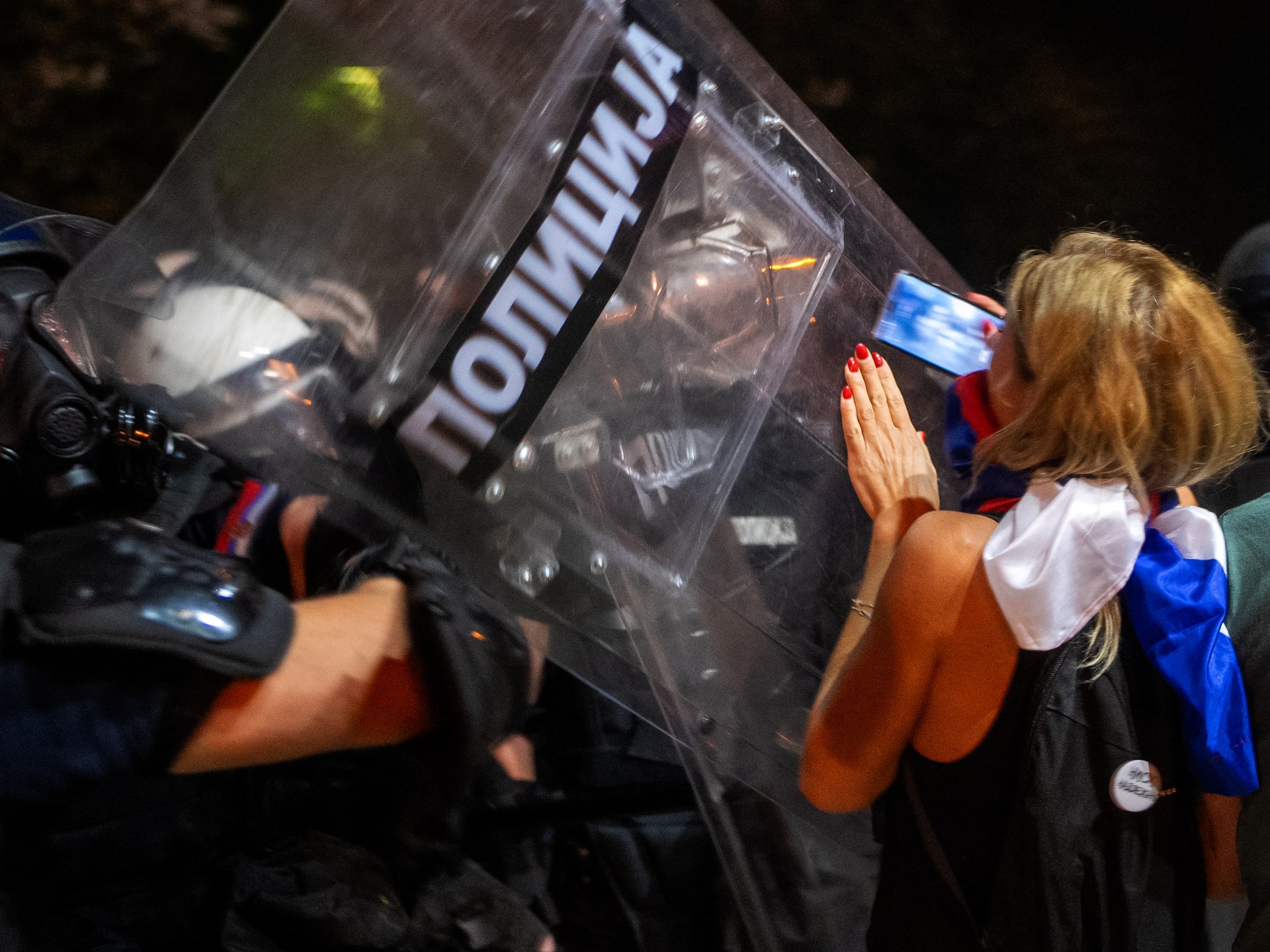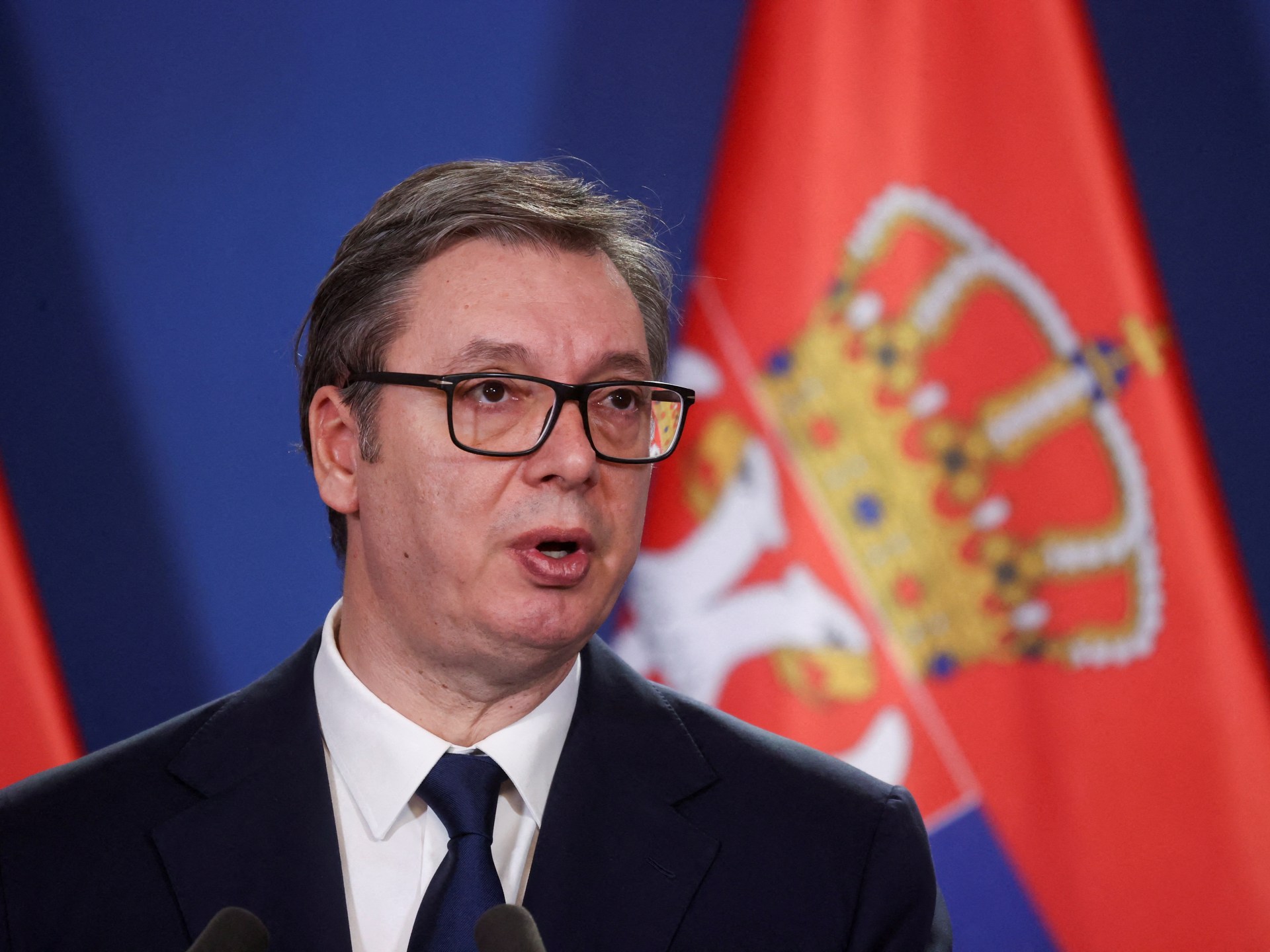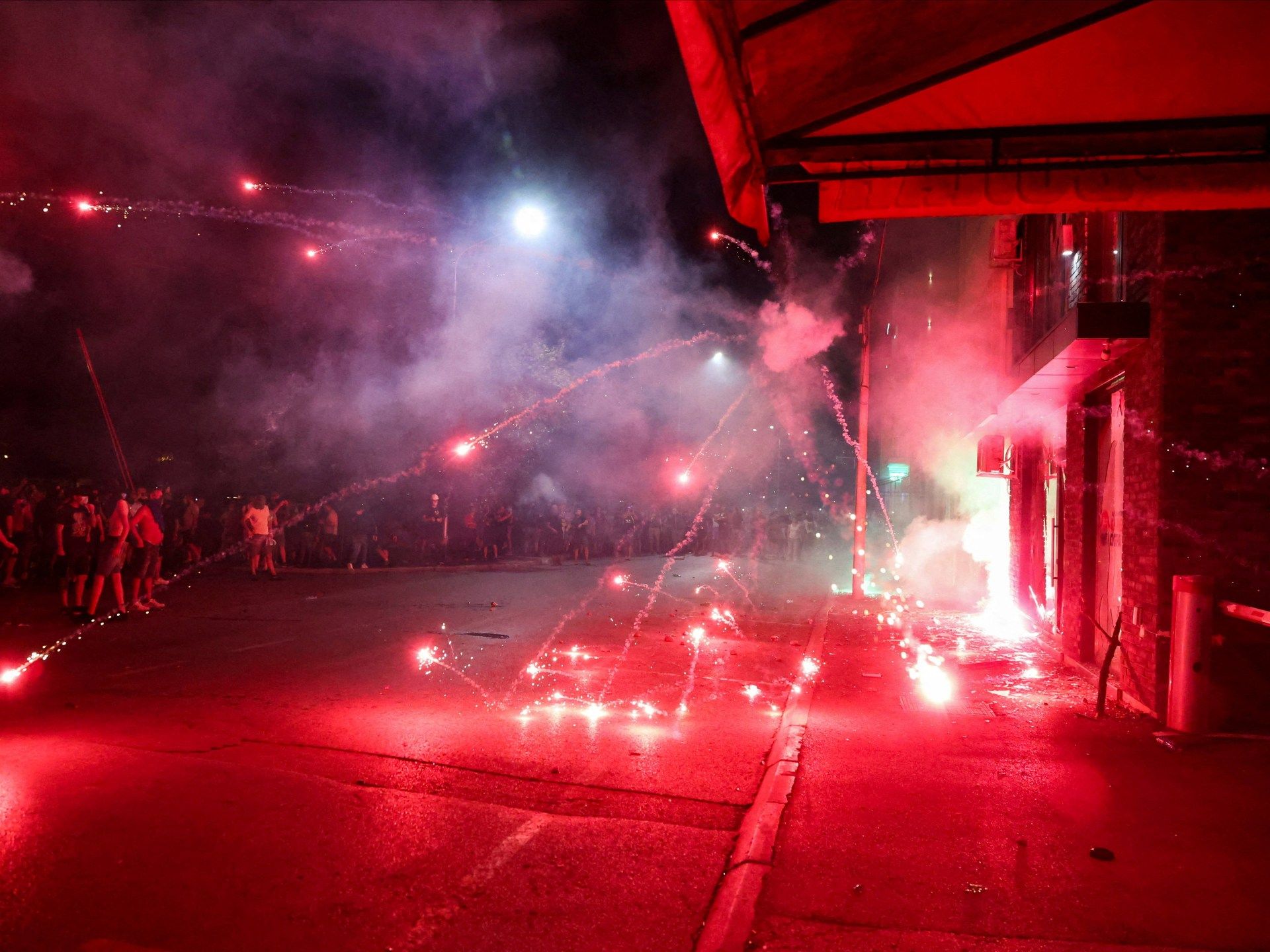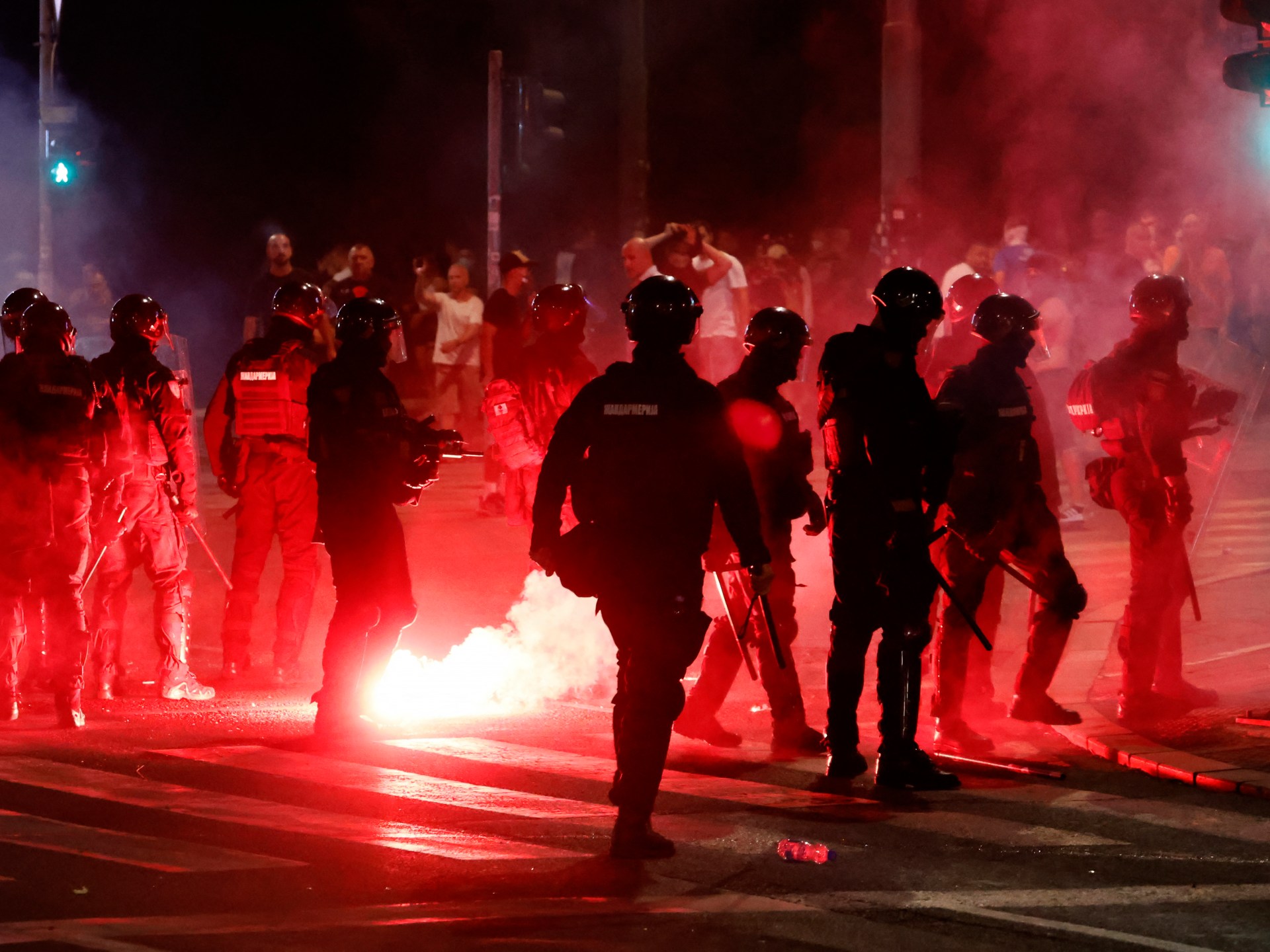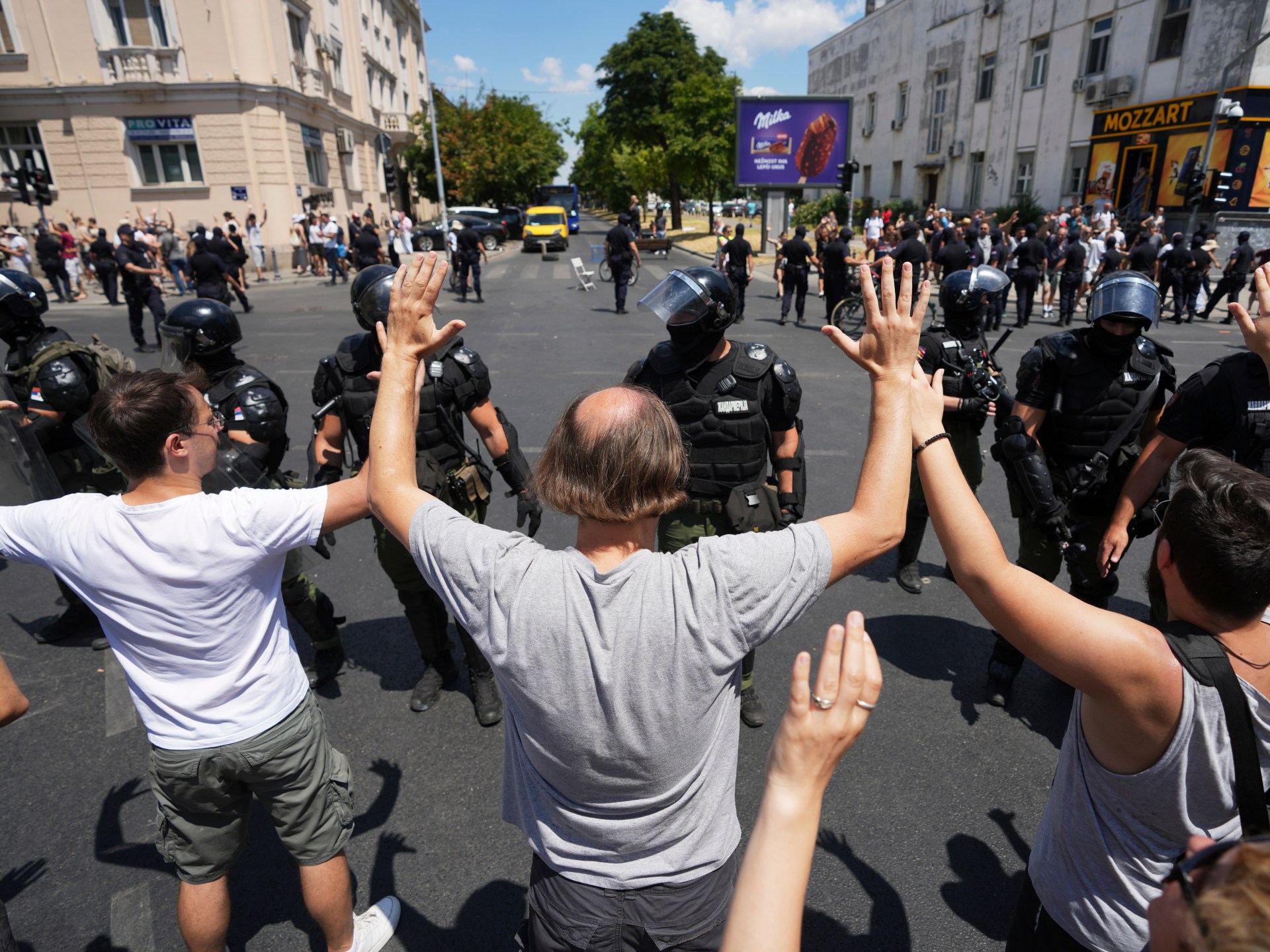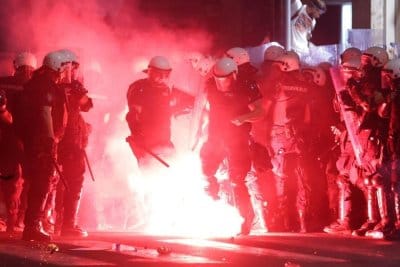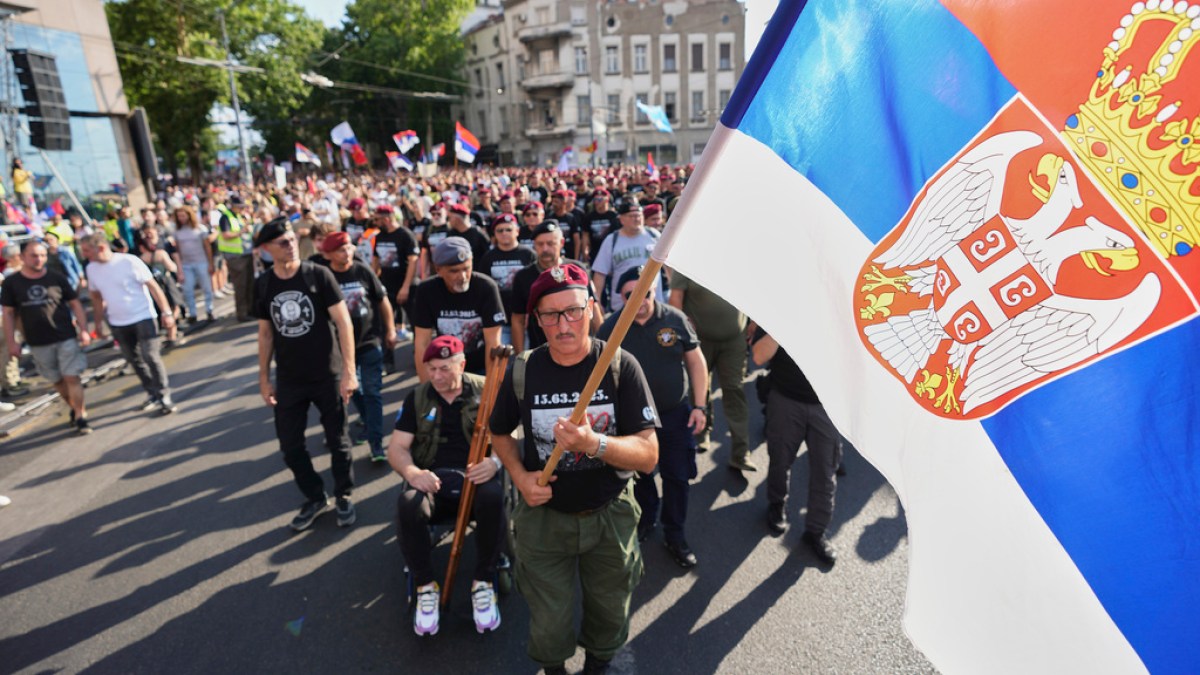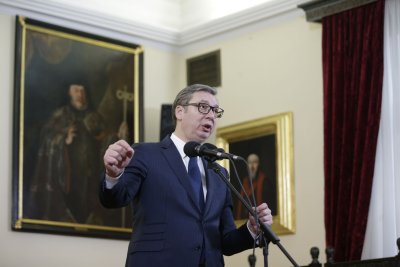Serbian police have cleared barricades set up by protesters in the capital after a weekend of antigovernment demonstrations that led to clashes with the police and captured an outpouring of months-long public dissent against the government.
On Monday, police removed metal fences and moved rubbish containers that had been blocking traffic in Belgrade’s Zemun district, while several dozen protesters chanted antigovernment slogans and declared they would return to the streets.
In a statement, the police said many people had been arrested but did not give their number. Their arrest has fuelled anger among those demonstrating against a populist government it accuses of authoritarian policies.
Protesters have called for the immediate release of those accused of attacking the police or plotting to overthrow the government.
President Aleksandar Vucic, who has promised a crackdown on protesters, praised the police action during a visit to Spain on Monday and said, “Citizens should not worry, the state is strong enough to secure law and order.”
Over the past eight months, student-led protests have taken place nearly daily after the collapse of a train station roof killed 16 people in November in the city of Novi Sad.
While the incident followed renovation work at the station, it has been widely blamed on poor construction and endemic corruption in the corridors of power.
On Saturday, an estimated 140,000 people rallied in Belgrade, in one of the largest demonstrations in the past few months, calling for a snap election to oust Vucic’s right-wing government. Authorities have, however, disputed the strength of the crowd, saying only about 36,000 people were demonstrating.
During the protest, some protesters clashed with the police, with nearly 50 officers and 22 protesters injured. Riot police used batons, pepper spray and shields to charge at demonstrators who threw rocks, among other objects.
The police said about 40 people face criminal charges over the clash. Serbian authorities arrested at least eight university students, accusing them of planning attacks on state institutions.
Following the November disaster, public outcry triggered the resignation of the prime minister and the collapse of the government.
Still, Vucic reshuffled his cabinet and formed a new government, refusing to announce a snap election ahead of its scheduled 2027 date.
The president accused “foreign powers” of orchestrating the Saturday protest and said protesters had been trying to “topple Serbia” but failed.
A close neighbour, Russia, commented on the protests on Monday and said the demonstrations could be an attempted “colour revolution”, a likely reference to Ukraine’s 2004 Orange Revolution.
“We have no doubt that the current Serbian leadership will be able to restore law and order in the republic in the very near future,” it added.
Vucic is regarded as a close ally of Moscow and was in the country on May 9 for the Red Square military parade, the most sacrosanct date on the Russian calendar, held to commemorate the Soviet victory over Nazi Germany’s Third Reich in World War II.
